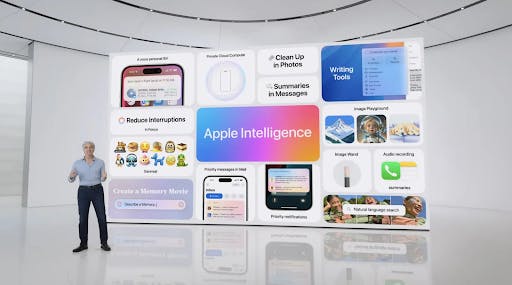
2024-7-23 08:11:25 Author: hackernoon.com(查看原文) 阅读量:2 收藏
Advertising used to be a world of guesses and broad demographics. I belong to the generation who grew up watching billboards and TV commercials for McDonald's and Coke. The cold battle between the rival brands was a strong hook that drew me into the world of business management. I still reminisce about the
I ended up buying a pair of Air Jordans willy-nilly, breaking my piggybank, they were just too cool to resist!

But ever since big data has ushered in this era, and I, like many content strategists, am intrigued and challenged by the ever-growing presence of AI. It is altering the roots of the advertising landscape, with its tentacles reaching into every aspect of my work – from the creation of ads to the targeting and optimization of campaigns. This transformation is not just about efficiency. Basically, mass-market ad campaigns and blasting messages to everyone are almost extinct now.
With over 80% of companies expected to adopt automation by 2025, it is fundamentally changing how consumers experience advertising, and how we, as advertisers, approach our craft. We are using AI-powered algorithms that can analyze vast troves of consumer data to create hyper-personalized experiences, tailoring ads to individual preferences and needs with laser focus.
With our recent introduction to iOS 18 at WWDC 2024, we can conclude that Apple is going very personal into AI (they call it Apple Intelligence). The sovereign approach to making all their apps and services AI-capable is their golden ticket to winning big in the AI race.

But how will this affect advertisements?
Well, a couple of months back, there were
The impact extends far beyond just personalization as ad platforms can leverage AI for real-time bidding, automatically adjusting bids for ad placements based on complex calculations of audience likelihood to convert. This level of automation frees me up to focus on strategy and creative development while maximizing ROI for my clients.
Sophie Eom, CEO and Co-Founder of Adriel
While the benefits of AI in advertising are undeniable, ethical concerns remain. Transparency around how data is collected and used for ad targeting is crucial. Additionally, AI algorithms can perpetuate societal biases if not carefully monitored.
At a
This discussion underscores the critical balance between harnessing AI's benefits and addressing its potential societal harms, especially ensuring that AI models are free from bias.
The future of advertising lies in a symbiotic relationship between human creativity and AI's analytical prowess. I am sure that AI will continue to automate tasks, optimize targeting, and personalize experiences, but human intuition will remain vital for crafting compelling ad narratives and strategies.
As AI continues to evolve, one thing is certain: the days of generic, one-size-fits-all advertising are fading fast. The future belongs to AI-powered, hyper-personalized experiences that captivate consumers and forge deeper brand connections.
The question remains - Are we prepared for the rise of ad machines in our businesses? or Should people be prepared for ads that could almost exactly predict what they need?
如有侵权请联系:admin#unsafe.sh